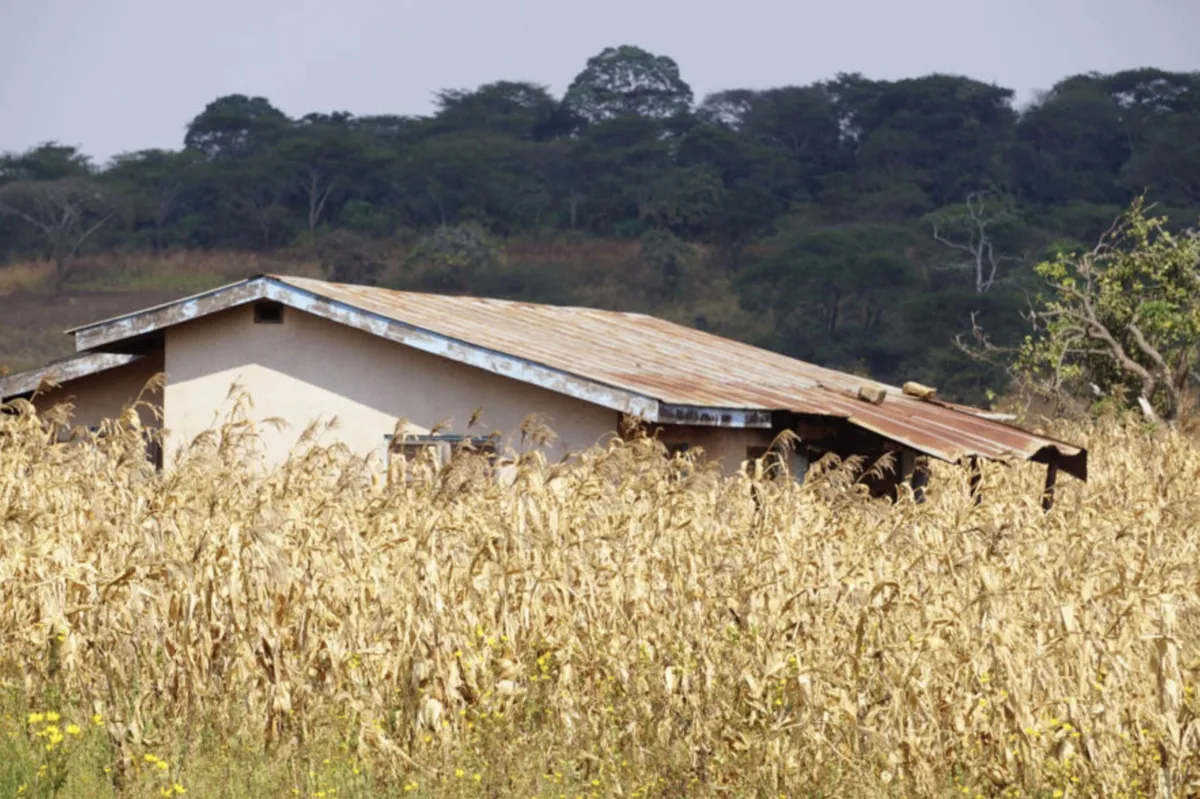Reminded of our ignorance in Tanzania

Evan was barely letting Deo respond before firing another question, excited as we were to have a conversation in English. We all stood, us straddling bicycles in leafy shade, him under the sun on the dirt road. We’d paid this older man no attention, his ‘salama’ returned like a thoughtless volley. We were eager to look at the maps on our iPhones and drink water, but Deo surprised us by asking a question in the only language we know.
Different had become the same. Little Swahili exchanges from the easy mornings into the weight of the late afternoon. Dwellings with dark entrances without doors, spindly cassava plants, men navigating their motorcycles around ruts and rocks in rubber boots, tiny dependants strapped to their sisters and mothers with cloth swaddles. Our new normal. Sun-crisped remains of maize husks still standing, roadside bushes coated in red dust, flies. Hot, dry life, everyone and everything seemingly limited by water.
Travelling, we are on a daily collision course with observations to wonder about, but fewer opportunities to get answers. In East Africa this is especially true of Tanzania, where Swahili is the uniting tongue, not English. Deo’s stories were about his flavour of ordinary, the one we now cycle past and stop briefly in each day. What he had to say was fascinating because it proved us wrong.
Last year, at fifty-nine, he’d left his family to move here, rural western Tanzania. Others had told him this region was fertile, so he came, fleeing the drought that’s taken hold around Lake Victoria. He rents three acres a little down the road from where we spoke, growing maize. Some for eating and some for income, but “you can’t sell it all,” he chuckled. Now, it’s harvest time.
He gestured to a young man with luminous skin on a motorbike, one of a small group gathered around us to silently watch the conversation. When the maize is ready, Deo negotiates a price with him. It’s transported to town in sacks to continue down the value chain. Deo referred to the man as a businessman. He referred to himself as a peasant.
The Deos of Tanzania cross our path far less often than we need. Many of our questions—why are so many tomatoes for sale, where do people buy clothes, what do people look forward to?—are gradually forgotten. Or, worse, we answer them ourselves using our biases and our fears. Passing hundreds of strangers each day, it’s easier to generalize and harder to remember you know little about them. Had we not spoken to him, I’d have judged Deo to be a man in dusty sandals with nothing to do. And the motorcycle businessman? Deemed a low-level threat to my tranquility who would take any opportunity to sidle up beside me and look me up and down.
Generalizations are supposed to, generally, hold true. When I met Deo that day, in his ‘Vote CCM, Vote for Magufuli’ baseball cap with a picture of the new president stitched on like a scout badge, it was a reminder to check out my evidence whenever I have the chance. I still cling to generalizations, especially about African men and men in general, based on little truth. They’re comforting in their own way, perhaps because they don’t challenge my world view too much.
That day was surprising. The peasant was bilingual. The dying stalks of maize represented fertility and elsewhere, those living around Africa’s largest freshwater lake face drought. We were the only ones in the village with maps, 3G, and digital books about Rwanda and Nigeria to read at night. But that day, I felt like the ignorant one.